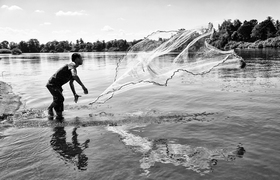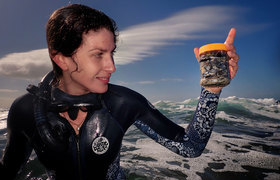Installation of new bins part of UCT’s green campus transformation
05 March 2021 | Story Carla Bernardo. Photos Je’nine May. Read time 5 min.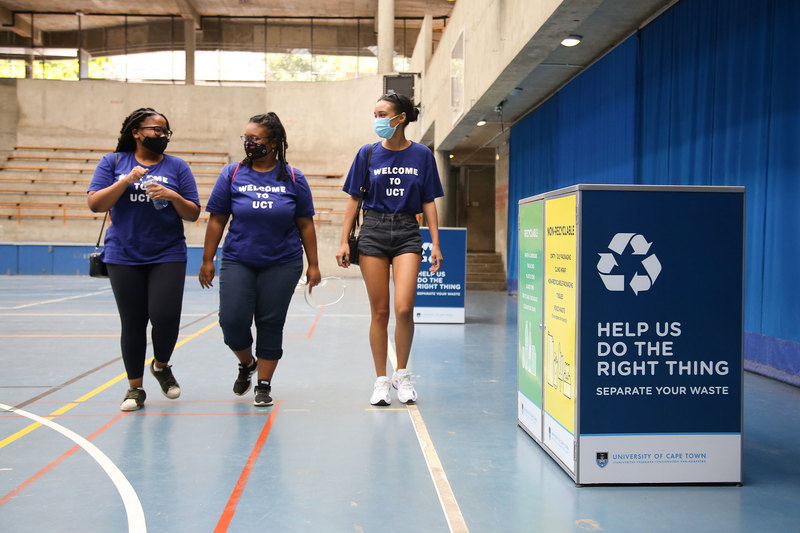
New and improved bins have recently been installed across most of the University of Cape Town’s (UCT) campuses. This forms part of the university’s sustainability transformation plans, which include improving recycling among the campus community and reinforcing a simple and efficient colour scheme: green for recyclables and yellow for general waste (non-recyclables).
In addition to replacing damaged bins and lids, and those that have deteriorated over the years due to normal wear and tear, the new bins feature eco-lids, which have larger openings to facilitate easy disposal of general and recyclable waste. The lids are also fitted more firmly to the bins with a hinge, ensuring they do not blow off in windy conditions.
The bins’ colour scheme allows people to easily determine what kind of waste goes where. UCT’s director of environmental sustainability, Manfred Braune, explained that keeping it simple with just two colours – green and yellow – is an important part of a responsible and efficient waste disposal process.
“Experience in the recycling industry has shown that too many different kinds of bins confuse people, as they don’t know what goes where, and with constant innovation in materials and recyclability, this is constantly changing,” he said.
What to dispose of and where
It is important not to reinvent infrastructure every time materials are no longer recyclable or new materials become recyclable.
If staff and students are unsure of whether their waste is recyclable, Braune advises they dispose of it in the green bins (This is only applicable to dry and clean waste). The waste is collected daily and taken to a large off-site sorting facility where all waste is checked and separated into the correct recyclable waste streams. This is handled by UCT’s current waste contractor, Waste Control.
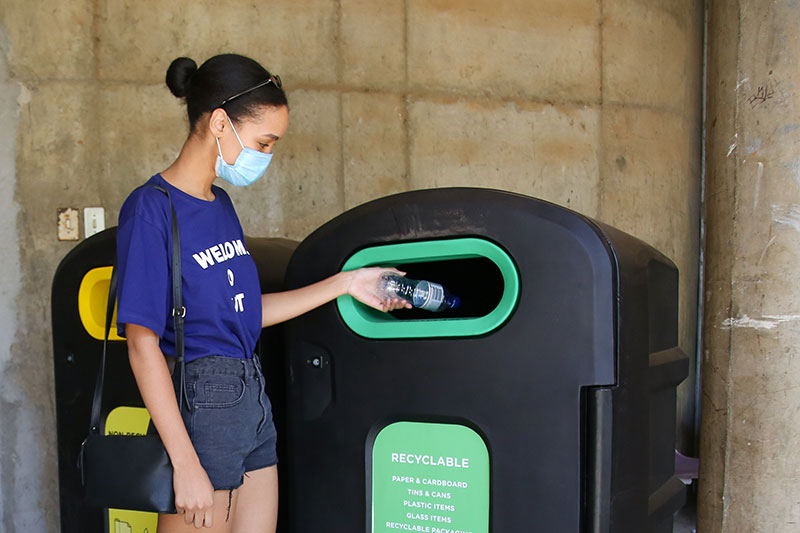
Staff and students may be unsure how to dispose of face masks. If masks need to be discarded, they should be placed in non-recyclable waste bins, with both straps cut.
“The straps are causing unwanted harm to wildlife where they easily get caught in them and can’t get out,” said Braune.
Exciting additions
In addition to the new bins, food waste from residence kitchens will be collected separately and supplied to either a pig farm or fly farm (which produces food for a fish farm), depending on where the demand is greatest.
Braune also announced that UCT will be trialling the use of organic bins in food courts. This is to see whether students and staff will respond positively to separating food waste, which can then also be recycled with the food waste from kitchens.
“The permanent implementation of this will depend on the success of the trial,” said Braune.
Building awareness
The installation of these new bins is just the first step; the next is ensuring that the campus community is aware of the importance of recycling and committed to playing their part.
“Having new bins is only part of the solution in helping UCT’s sustainability goals. An important step is the involvement of people,” said Noelene le Cordier, UCT’s senior horticulturist. Le Cordier manages the team that looks after the outdoor waste collection services.
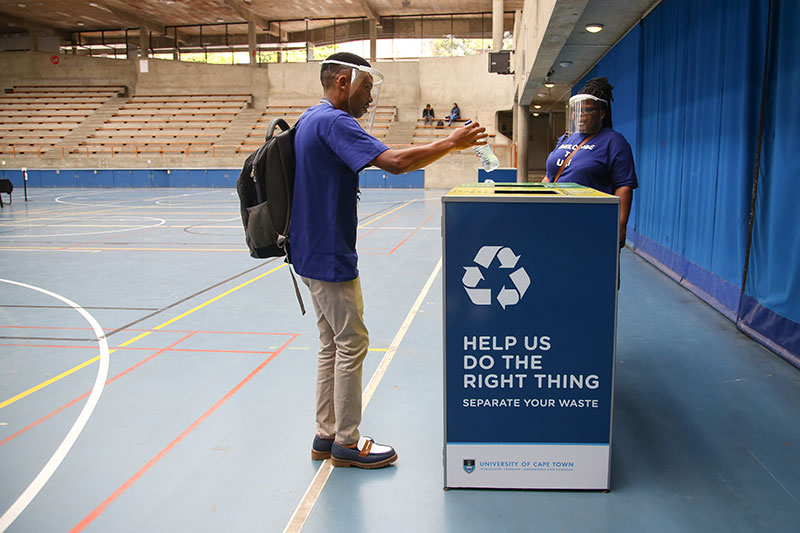
An awareness-raising programme will be launched in 2021 that will aim to increase buy-in and support from the campus community towards reducing the collective environmental footprint, especially when it comes to the amount of waste produced. This will include some exciting art projects that will involve UCT’s Michaelis School of Fine Art.
“Of course, [the bins] are not sufficient on their own. They will only work if the UCT community takes them seriously and are regularly reminded and updated on how to use the facilities,” said Le Cordier.
UCT’s Institute for Communities and Wildlife in Africa will also share its expertise, analysing and monitoring the relationship between waste and rodent control on campus and the impact this has on surrounding wildlife over the next four to five years. This will form part of the vice-chancellor’s campus sustainability project, which will be launched later this year.
 This work is licensed under a Creative Commons Attribution-NoDerivatives 4.0 International License.
This work is licensed under a Creative Commons Attribution-NoDerivatives 4.0 International License.
Please view the republishing articles page for more information.








